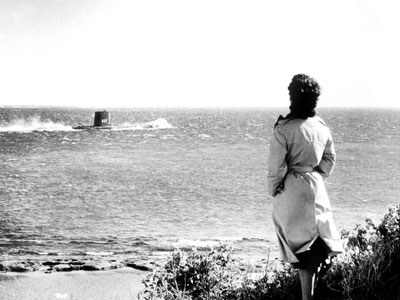Brought to you by Peet's Dark Roast Colombian...
For the hell of it, I Googled "Waldenswimmer" and came across this:
"Once in a while in that vast nothingness of the internet I’ll happen across a blog from someone who has something of substance to say. I have also learned that Dmitry Orlov is likely discontinuing any more ‘collapsitarian’ blog posts. Probably not a good subject to dwell on when you have an infant son. In ’Dmitry flicks it in‘, Harry Willis reminds us that America has been the epicenter of capitalism, always for sale to the highest bidder and now home to a new growth industry – Doomsaying."
Thus begins a post from the blogmeister at collapseofindustrialcivilization.com. He then proceeded to quote virtually the whole post (from November, 2013). The post was nominally about Dmitry Orlov's retirement from the field of collapse writing. Not that I actually think Dmitry will do that, because it's his brand and power base. If he's serious about writing only about things like sailing and his newfangled idea of a different alphabet for the English language, he'll soon be down in the weeds with me and the bloggers who write about new brownie recipes. Keep collapsing, Dmitry; it's where the action is.
The post went on to describe Sheldon Wolin's concept of "inverted totalitarianism," something I've done on several occasions but at greater length there. I have to say the post made me sound a little more radical than I really am by nature. I'm more of a passive "social systems analyst." I'm very curious about how we got into the present configuration of wealth distribution, for example, and why the hold of Big Money over Big Government is so absolute, worldwide. Sketching out my ideas about how that happened is an absorbing enterprise.
The basic facts become more fantastic by the day. Paul Beckwith quotes an analysis showing that the wealthiest 85 individuals have as much wealth as the bottom one-half of all humanity (over 3.5 billion people, that is to say). This factoid is related to what I was writing in November and to Sheldon Wolin's thesis. Because of globalization, the same kinds of forces of monopolization, market dominance of brands, and acquisition of smaller business entities by giant holding companies tend to continue the relentless process of concentrating money and power in fewer and fewer hands. It is a self-reinforcing feedback loop: vast concentrations of wealth enable acquisition, acquisition of competition enables monopoly, monopoly enables vertical integration of ownership of everything, including governments.
This last step is a consequence of the McLuhan Age, naturally enough. Politics in America is now mostly a sub-specialty of the advertising and public relations business. To achieve visibility in American politics requires access to big media, which in turn are owned by six large corporations. Without such visibility, a candidate has no chance of breaking through to a position of power; however, only a candidate from one of the two officially sanctioned political parties will be given the visibility, or "oxygen," necessary to become a brand that the minority of Americans interested in politics will vote for. Thus, although we nominally have a democracy, it is in fact controlled and circumscribed by the same financial forces that control everything else.
Like chain restaurants and hotels, such concepts typically begin in America but then through globalization tend to spread to all parts of the modern industrial world, and the next thing you know, 85 individuals control as much wealth as three and a half billion similar mammals. Humans are indeed a species which tends toward hierarchical arrangements, and these hierarchies tend to become more rigid and inefficient the longer they are in place, until the hierarchy's only raison d'etre is the perpetuation of its own power.
Attempting to shift or reform the negative consequences of such ossification is extremely difficult, even in a democracy with an educated electorate. This would certainly leave the United States of America out of the loop. For one salient example, a recent survey demonstrated that one in four Americans did not know the Earth revolves around the Sun. This mighty cohort of 25% of American adults are included in the same electorate who must assess America's energy policies, for example, and its effect on climate change. One could even argue from such data that perhaps an enlightened power elite may be the best hope for steering us through the dangerous cataracts up ahead.
Maybe The Big 85 can be in Paris in 2015 at the make-or-break conference on climate change. They're probably pretty well informed. At a certain juncture in the history of civilization, maybe even the fattest of fat cats realizes that all the money in the world profiteth a man nothing if he doesn't have a tolerable planet to spend it in.
As for Paul McCartney up above: I just found the video astounding. Abstractions and conceptualization are one thing; watching a genius casually demonstrate why he's who he is quite another, and a needed balm for the contemporary soul. Besides, money can't buy talent like that.


